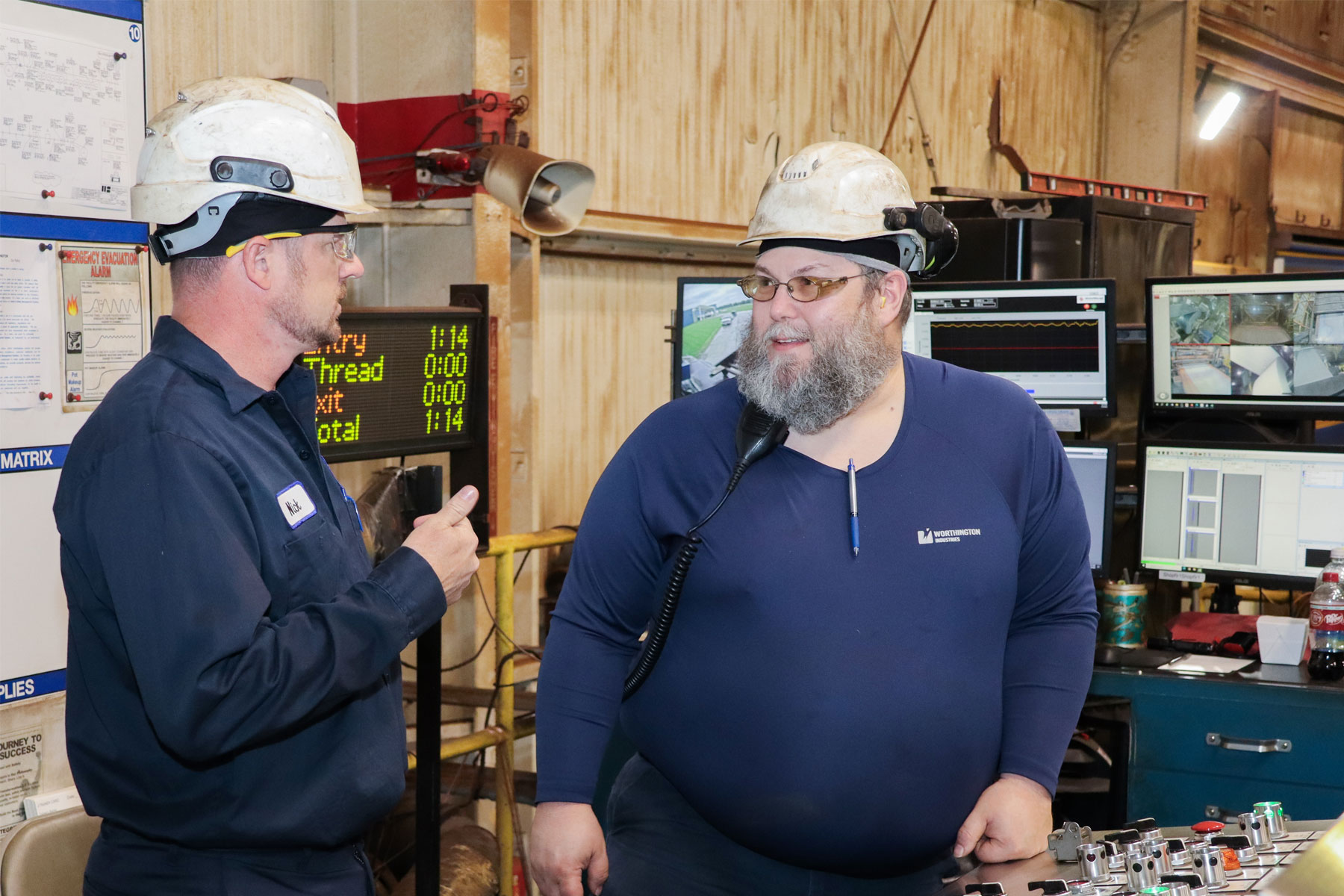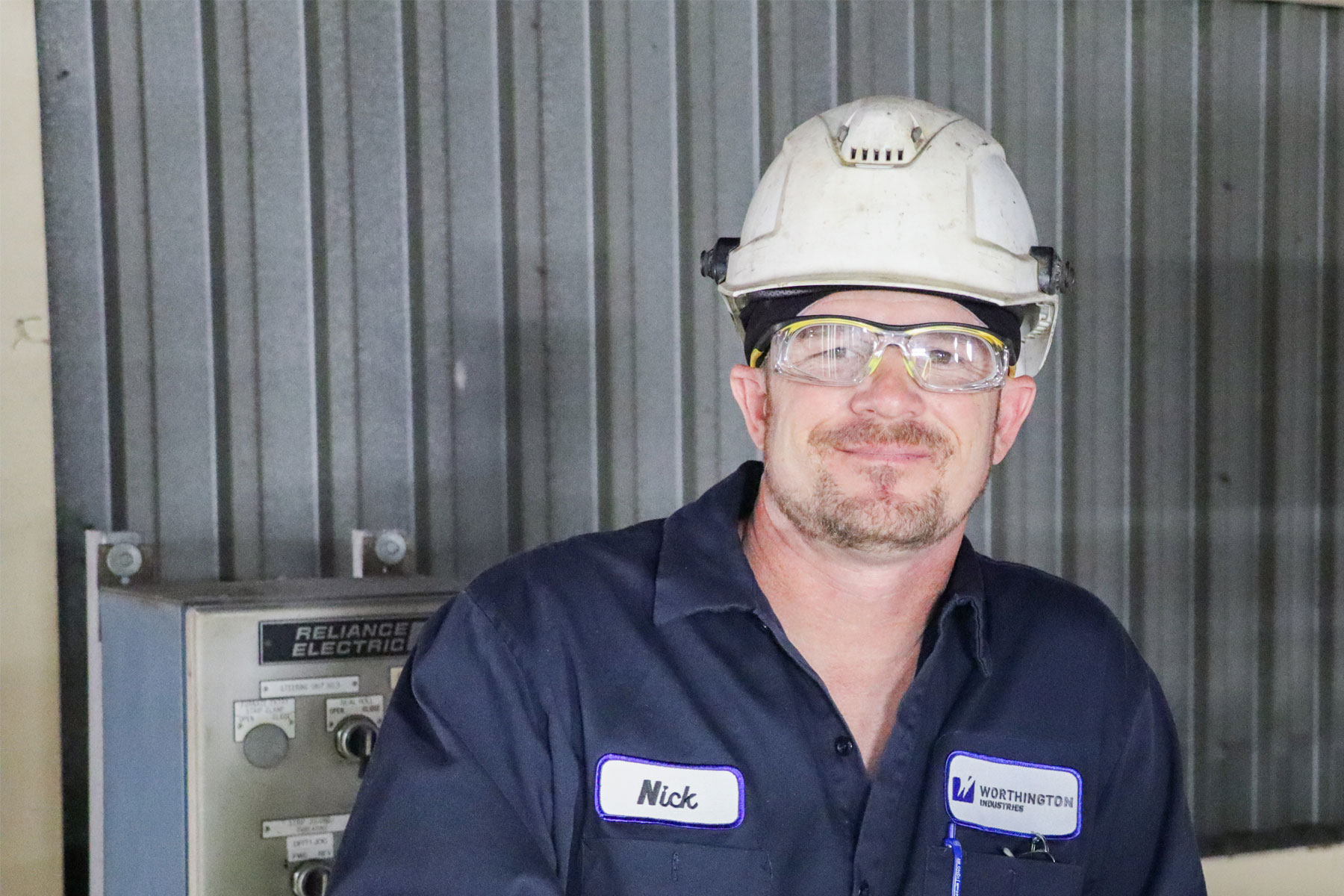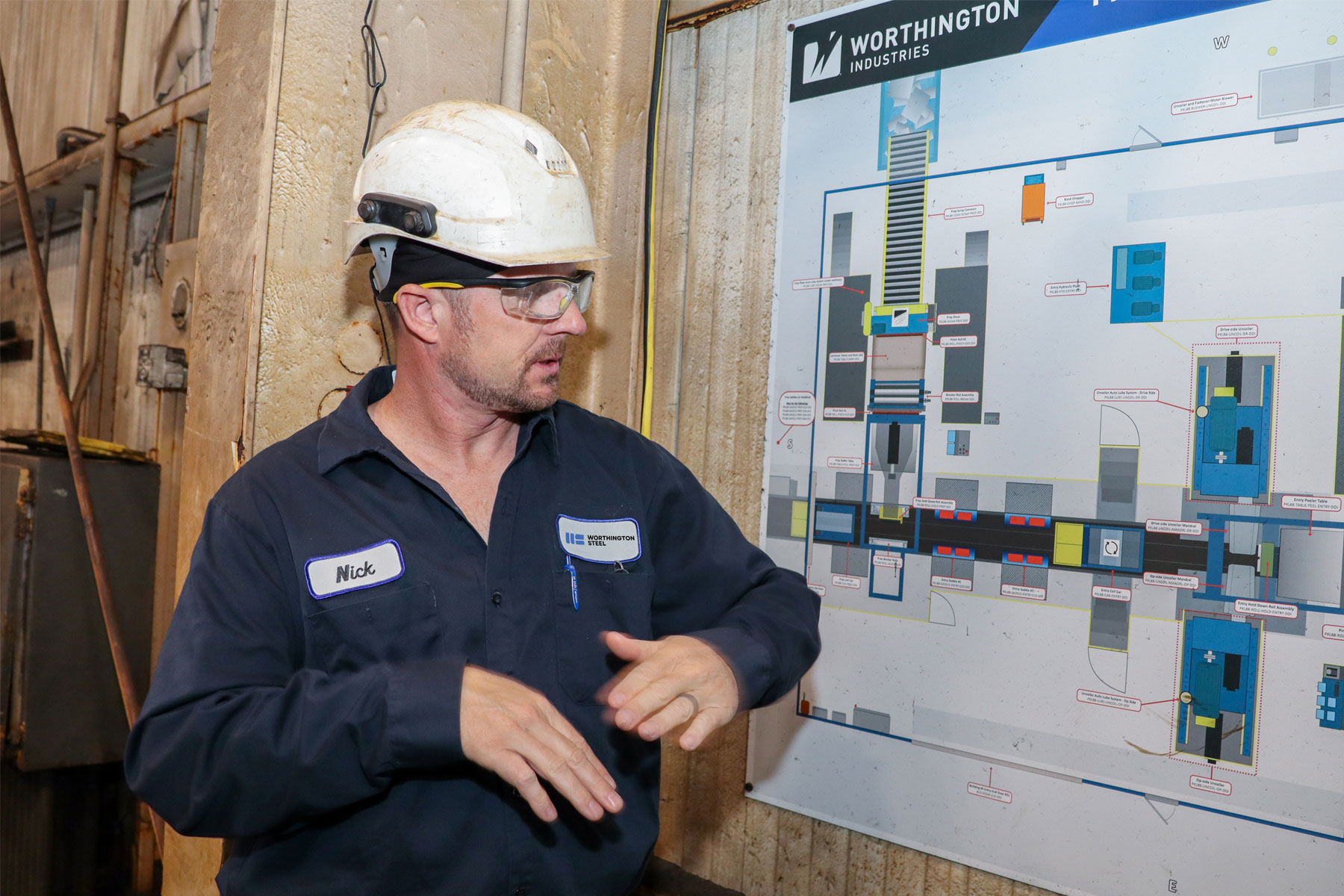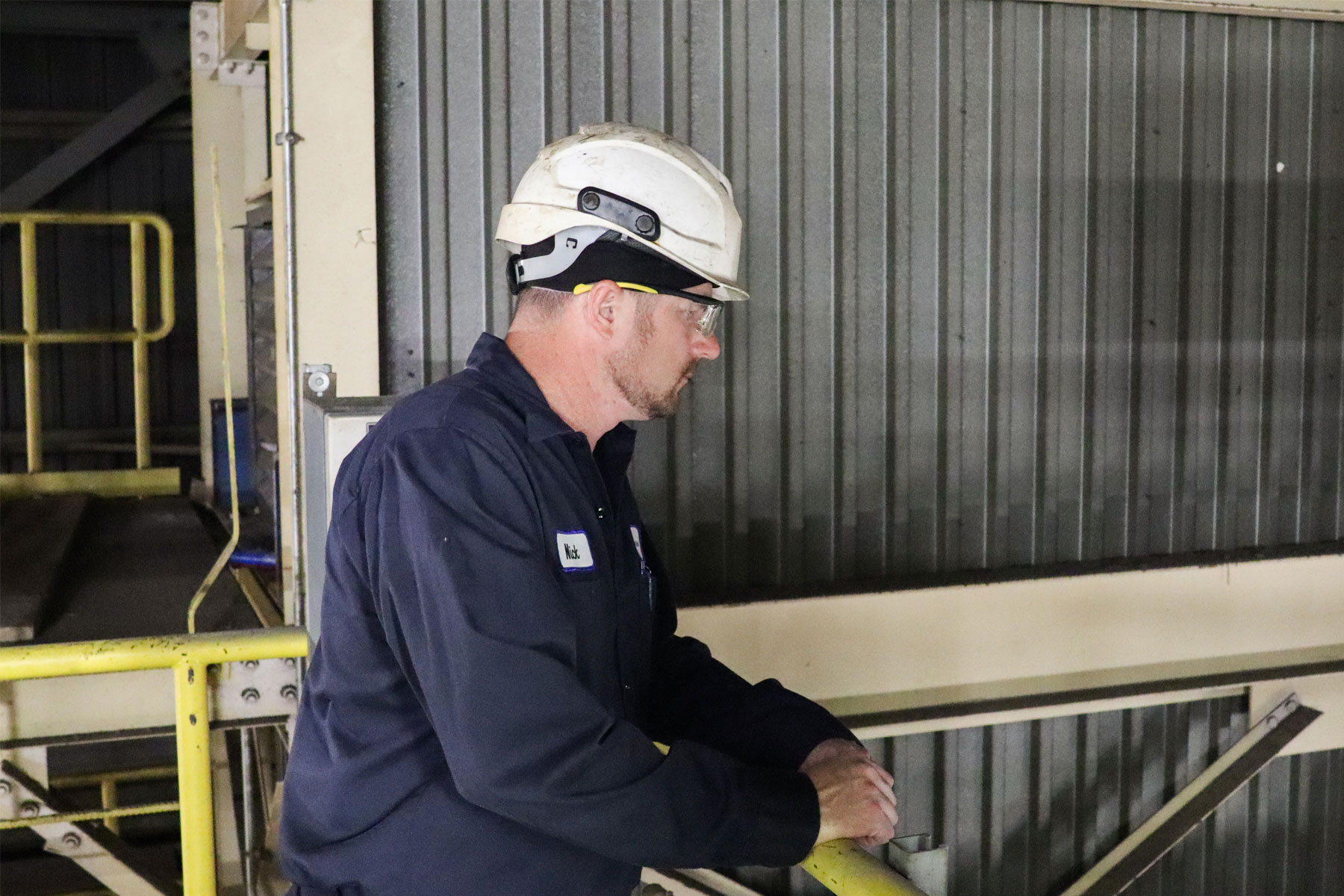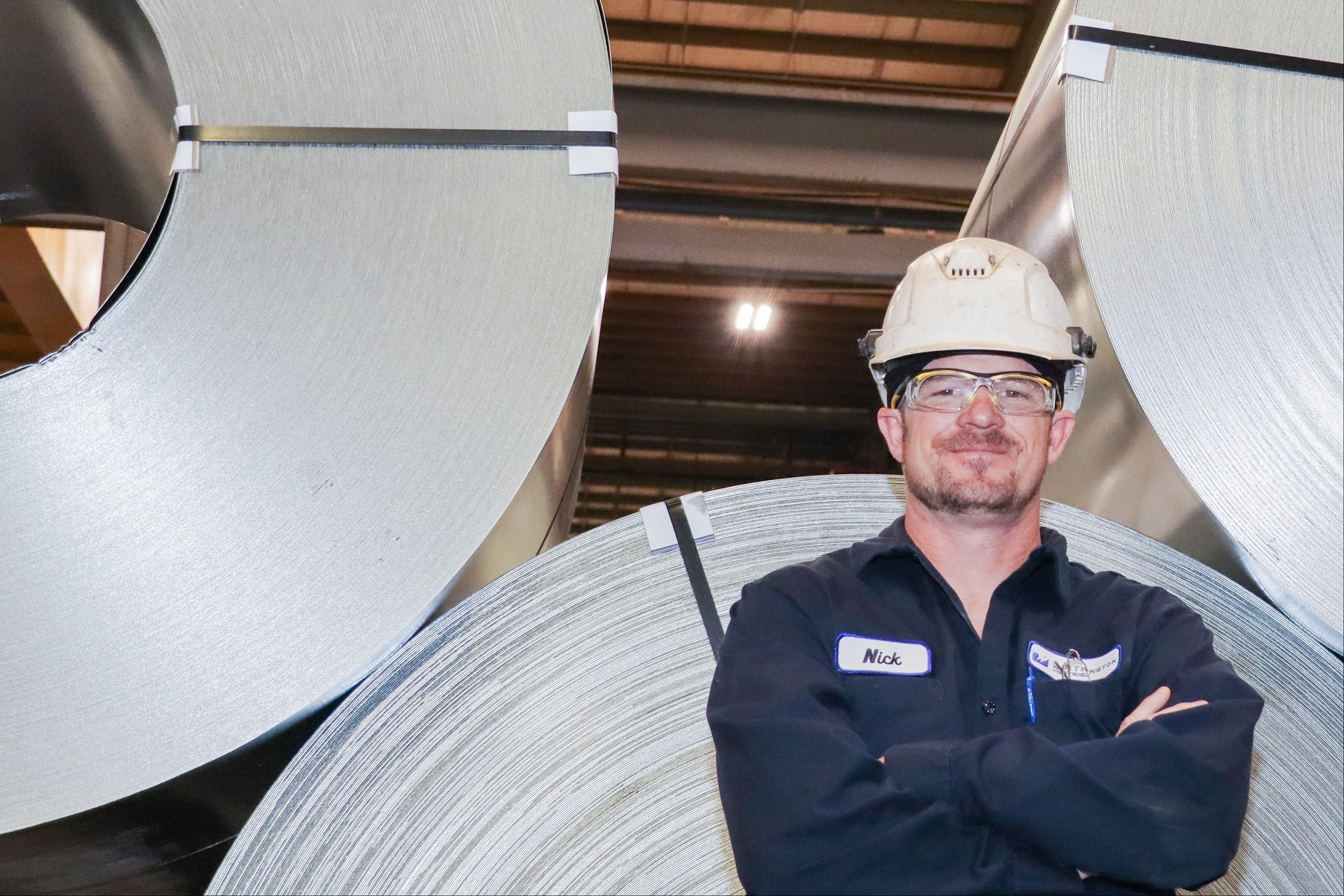
Our People
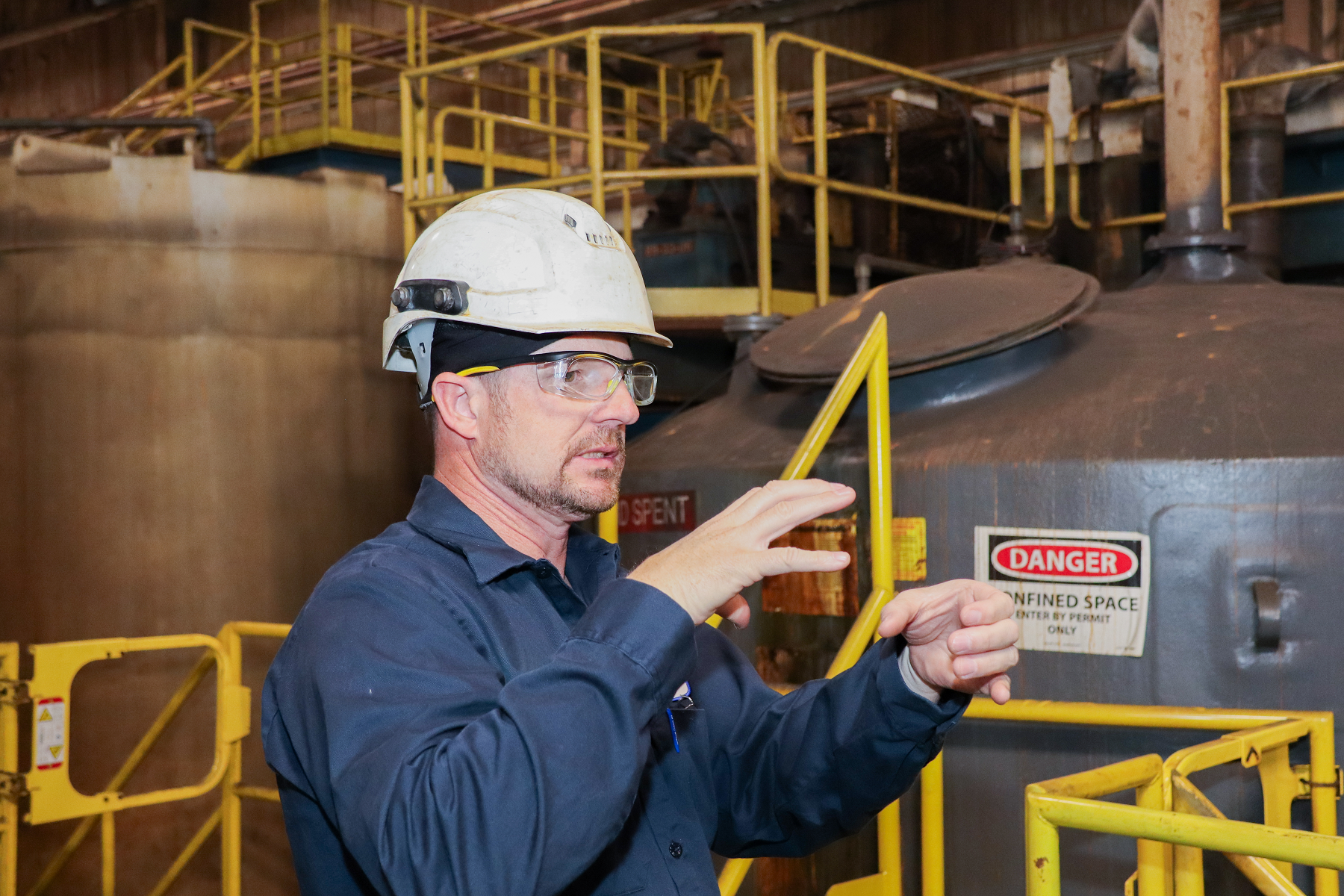
Growing up, Nick Siewertsen, a wet lab technician at our Delta, Ohio facility, witnessed his father, Donald Siewertsen's, decades-long career at Worthington Steel. He remembers going to the company picnic and golf cart rides with Company Founder John H. McConnell.
“I saw our Philosophy in action, and it matched the philosophy that I believe in, too,” Nick said.
Once he turned 18, Nick followed in his father’s footsteps and got a part-time position here.
Now, 24 years later, Nick has built a successful career and has held many roles at our Delta, Ohio location. As a deaf employee, Nick and his coworkers found new ways to communicate with each other on the floor by writing things down or using an interpreter.
“Being deaf doesn’t exclude you from being able to do the job. Not everyone has experienced being around somebody deaf,” Nick said. “I explained to them, ‘Hey, it’s OK to communicate this way or ask questions.’”
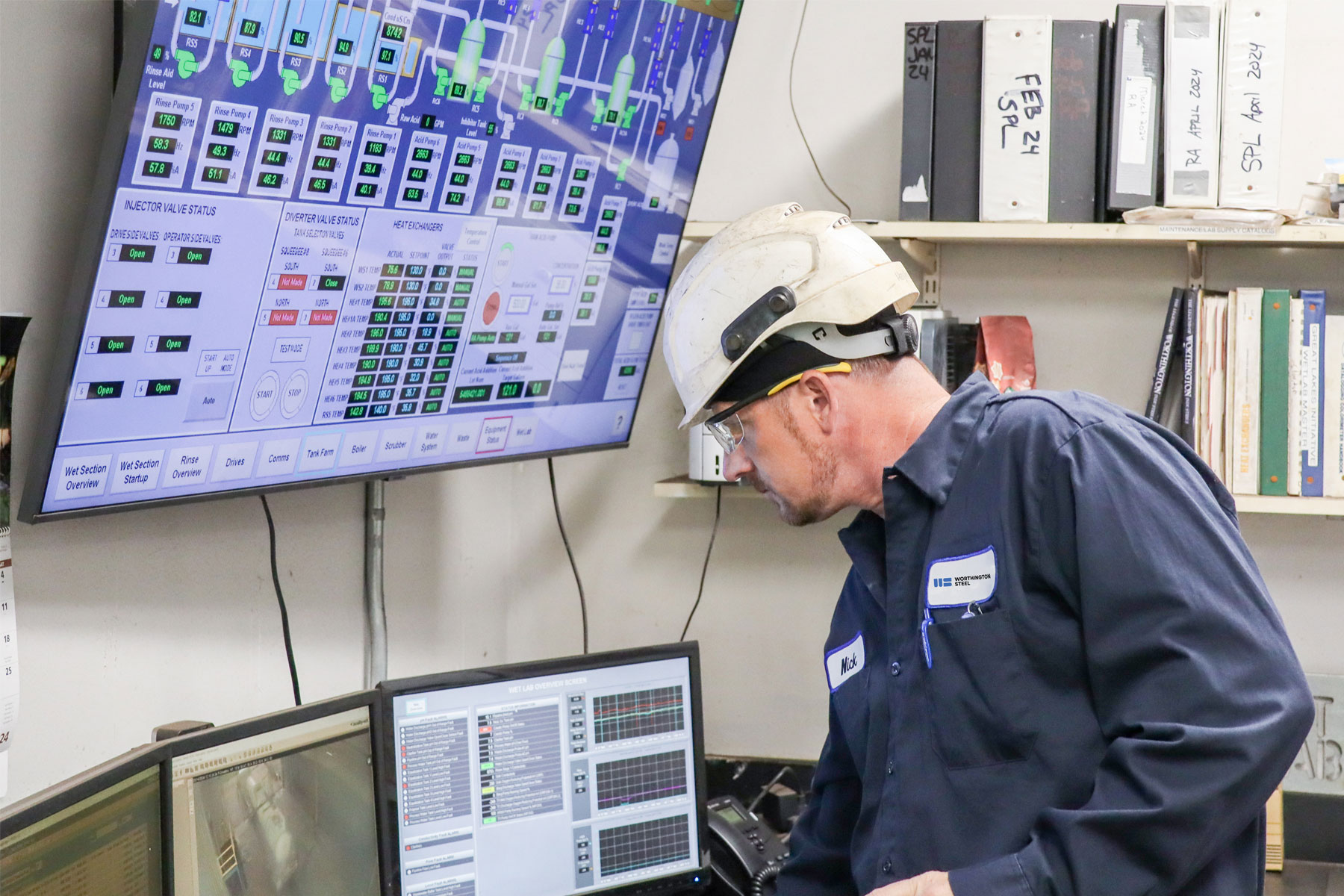
Communication is Key
Nick started at Worthington Steel after graduating from high school, doing summer work and cleaning around the facility. Later, he moved to the slitter and eventually, the pickle line and wet lab. He quickly cemented his place as one of the most experienced employees on the pickle line, where steel is run through acid before further processing. In the wet lab, which helps the pickle line operate, he is responsible for ensuring that all acid pumps, water and the boiler are running, as well as controlling the pH levels.
Our Philosophy
Communication – We communicate through every possible channel with our customers, employees, shareholders, suppliers and financial community.
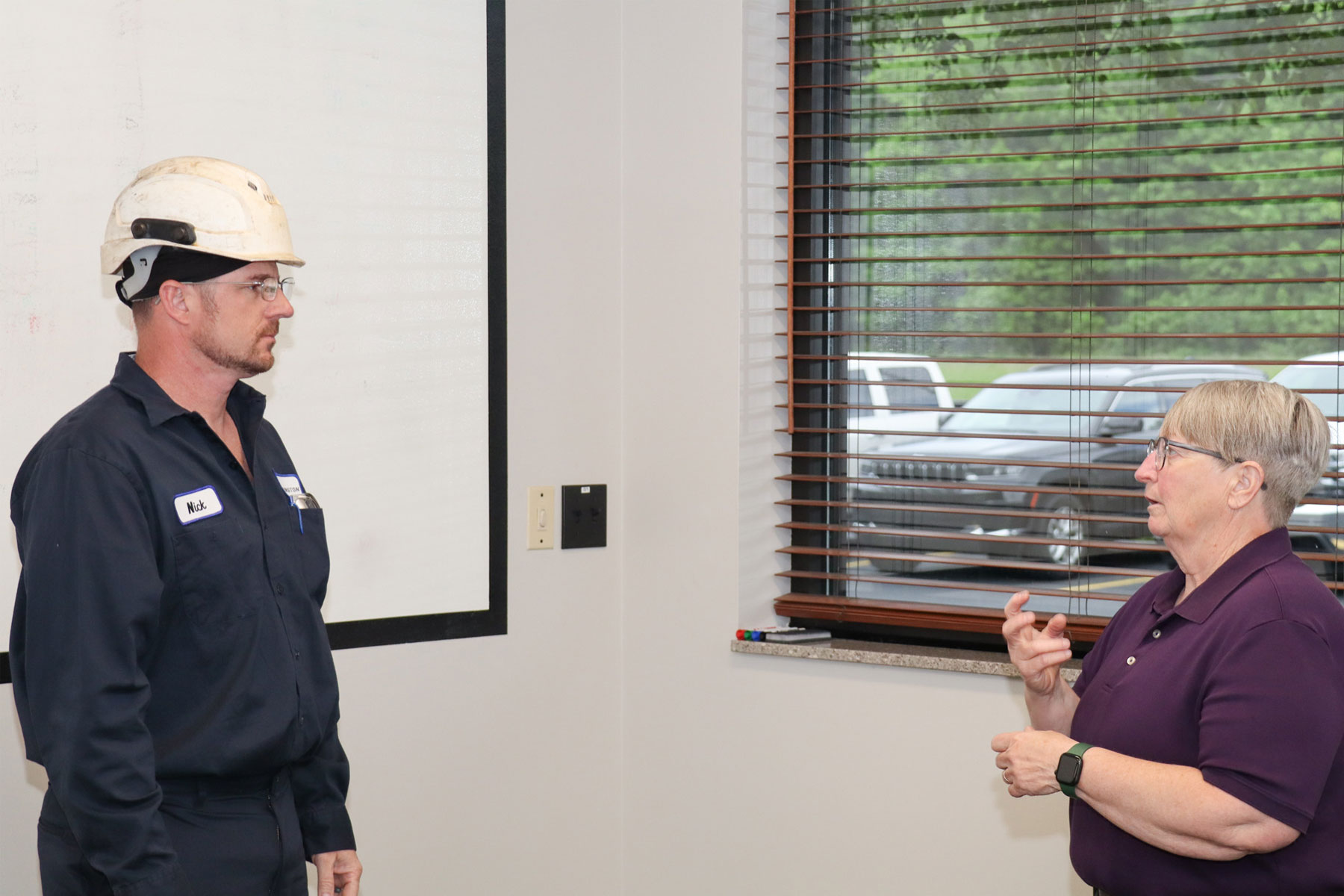
Over time, the facility has integrated new technology to make communicating easier. On the floor, Nick can use a tablet with software that allows him to submit work orders to the maintenance team when needed. In the wet lab, his phone lets him communicate with coworkers.
An interpreter also comes to the facility for safety trainings and other meetings. In addition, some of Nick’s coworkers have adapted their own communication methods. American Sign Language (ASL) can be challenging to learn, but some of those he works with have started learning how to spell certain words and have developed their own home-grown signs and signals.
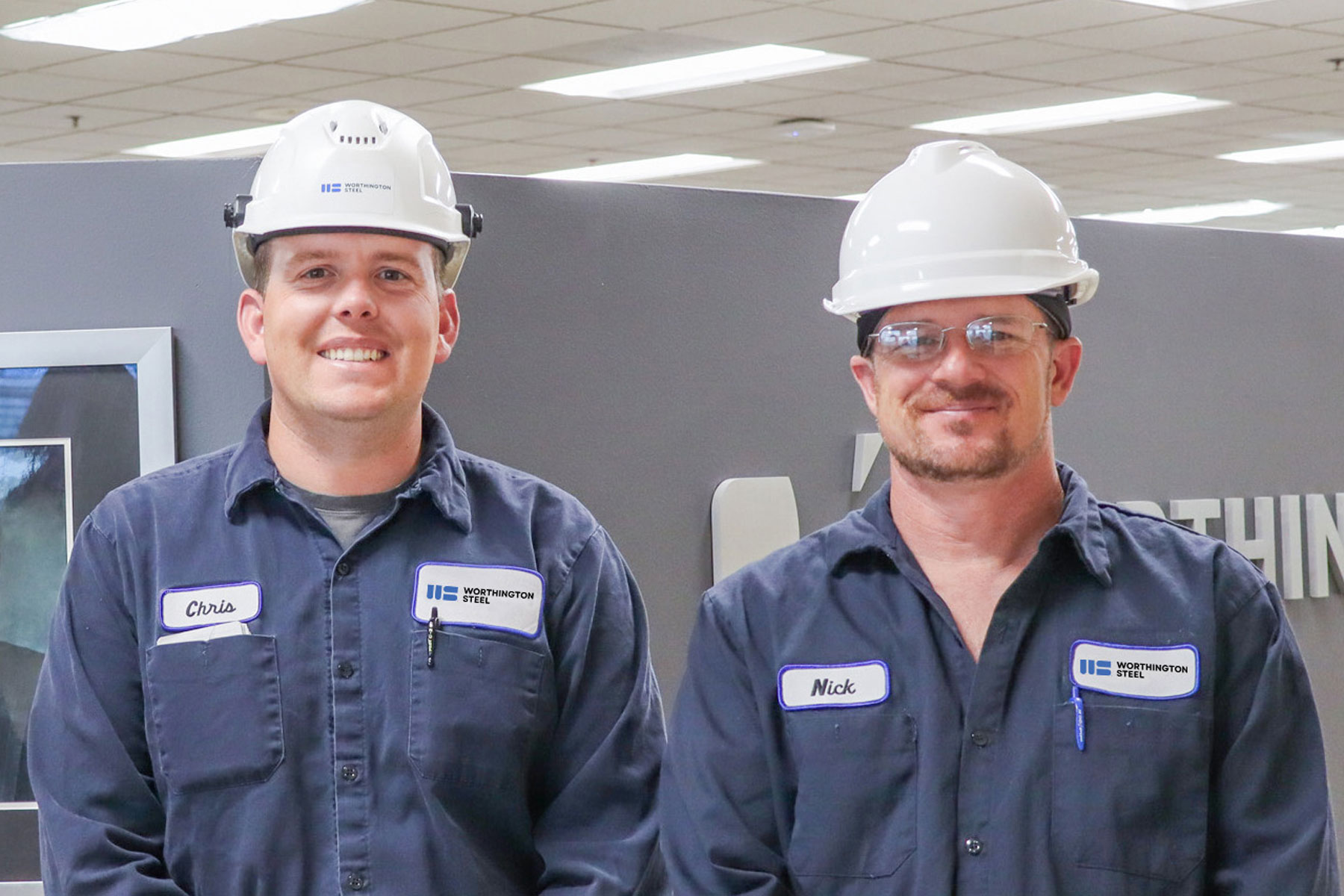
Support from His Team
Nick’s managers have also helped bridge any communication gaps. When Chris Hannon, pickle line area manager, started working with Nick, he noticed that the only way to communicate was by notepad or by walking over.
“I asked, ‘What’s the best way for us to communicate? And he started teaching me to sign.”’ Chris said. “We started with ABCs and 123s. If I didn’t know the sign right away, he could spell the word for me.”
Others have also started to learn some ASL. To help their education, Nick hangs up notecards around the facility with relevant workplace terms and signs every week.
The way Nick’s managers and teams adapt to meet his communication needs is what Worthington Steel’s Philosophy is all about.
“This might sound cliché, but I think it’s just looking at our Golden Rule as a guideline and ‘treating people as you would like to be treated,’” Chris said.
Chris Hannon, pickle line are manager
I feel like that’s what Worthington Steel is all about, and that’s what I view as a good culture. People willing to support each other.

Carving His Own Path
In his 24 years with the company, Nick has taken on many responsibilities. He has been involved with his facility’s employee council, which is a team of employees and managers who meet monthly to share company updates, provide employee feedback and facilitate better two-way communication. He also trains new employees on the pickle line and in other areas of the facility. And just like his dad before him, he brings his three daughters to company picnics and other family events.
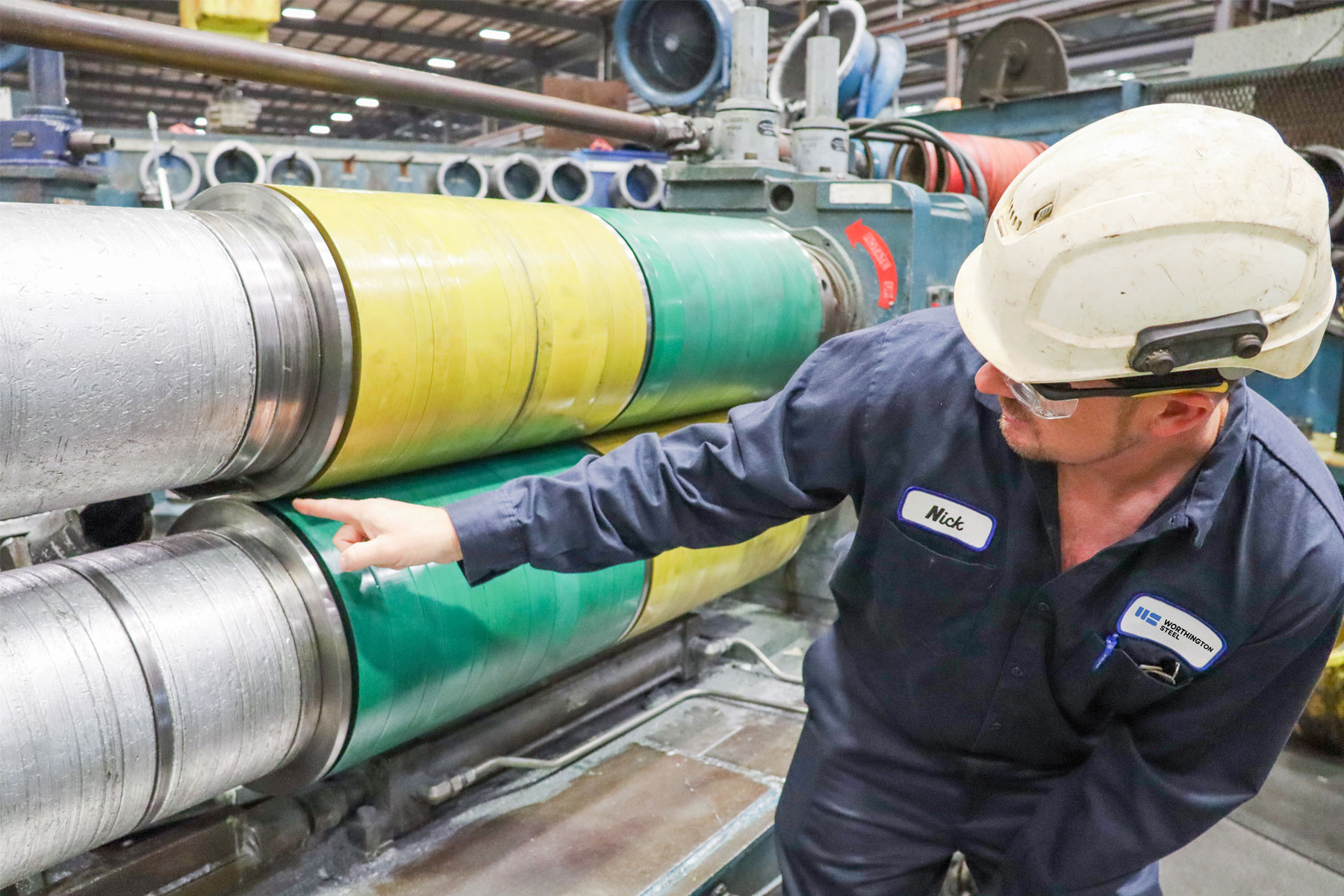
Looking Forward
Now, Nick is looking forward to the next step in his career.
“I’m ready for a challenge and to learn something new,” Nick said. “I will always learn every day, no matter how long I’ve worked here.”
Nick’s advice to anyone working with someone who is deaf or hard-of-hearing is simple – don’t treat everyone the same.
“Some people may be hard-of-hearing; they can speak, but they don’t use sign language,” he said. “It really depends on the individual.”
